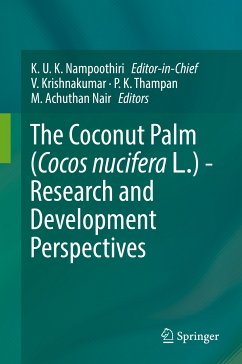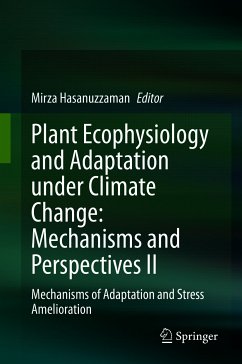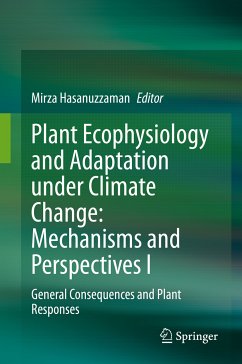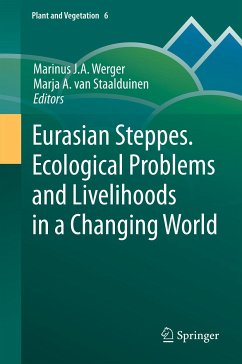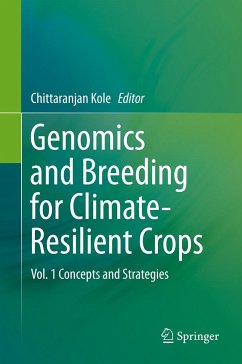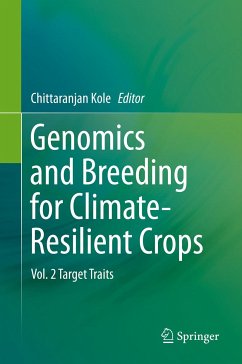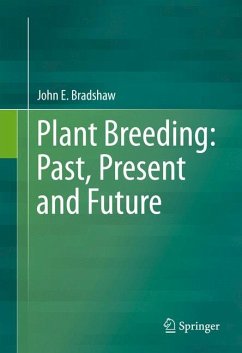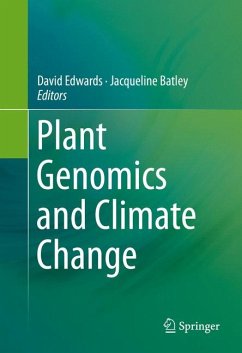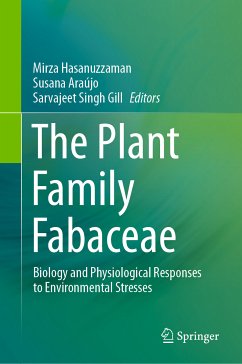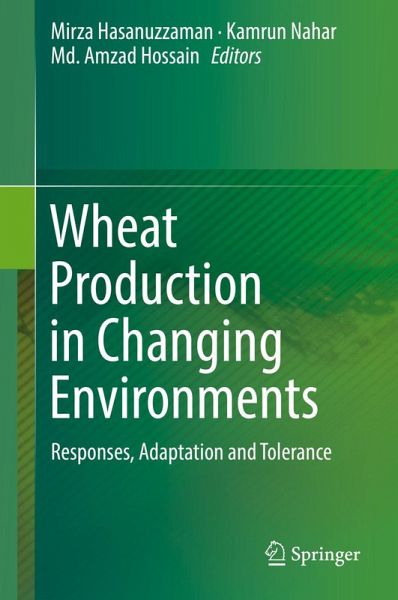
Wheat Production in Changing Environments (eBook, PDF)
Responses, Adaptation and Tolerance
Redaktion: Hasanuzzaman, Mirza; Hossain, Md. Amzad; Nahar, Kamrun
Versandkostenfrei!
Sofort per Download lieferbar
112,95 €
inkl. MwSt.
Weitere Ausgaben:

PAYBACK Punkte
56 °P sammeln!
This book presents recent advances in global wheat crop research, including the effects of abiotic stresses like high and low temperatures, drought, hypoxia, salinity, heavy metals, nutrient deficiency, and toxicity on wheat production. It also highlights various approaches to alleviate the damaging effects of abiotic stress on wheat as well as advanced approaches to develop abiotic-stress-tolerant wheat crops.Wheat is probably one of the world's most important cereals; it is a staple food in more than 40 countries, and because of its adaptability is cultivated in almost every region. Global w...
This book presents recent advances in global wheat crop research, including the effects of abiotic stresses like high and low temperatures, drought, hypoxia, salinity, heavy metals, nutrient deficiency, and toxicity on wheat production. It also highlights various approaches to alleviate the damaging effects of abiotic stress on wheat as well as advanced approaches to develop abiotic-stress-tolerant wheat crops.
Wheat is probably one of the world's most important cereals; it is a staple food in more than 40 countries, and because of its adaptability is cultivated in almost every region. Global wheat production has more than doubled in the last 50 years due to higher yields. However, despite their high yield potential, modern wheat cultivars are often subject to crop loss due to the abiotic stresses. As such, plant breeders have long aimed to improvetolerance in order to maintain yield.
Written by 85 experts, and offering the latest insights into wheat responses and tolerance to various abiotic stresses, it is a valuable tool for agronomists, plant breeders, plant physiologists and students in the field of plant science and agriculture. It is the first book to comprehensively cover past and current abiotic stress problems and tolerance mechanisms.
Wheat is probably one of the world's most important cereals; it is a staple food in more than 40 countries, and because of its adaptability is cultivated in almost every region. Global wheat production has more than doubled in the last 50 years due to higher yields. However, despite their high yield potential, modern wheat cultivars are often subject to crop loss due to the abiotic stresses. As such, plant breeders have long aimed to improvetolerance in order to maintain yield.
Written by 85 experts, and offering the latest insights into wheat responses and tolerance to various abiotic stresses, it is a valuable tool for agronomists, plant breeders, plant physiologists and students in the field of plant science and agriculture. It is the first book to comprehensively cover past and current abiotic stress problems and tolerance mechanisms.
Dieser Download kann aus rechtlichen Gründen nur mit Rechnungsadresse in A, B, BG, CY, CZ, D, DK, EW, E, FIN, F, GR, HR, H, IRL, I, LT, L, LR, M, NL, PL, P, R, S, SLO, SK ausgeliefert werden.



